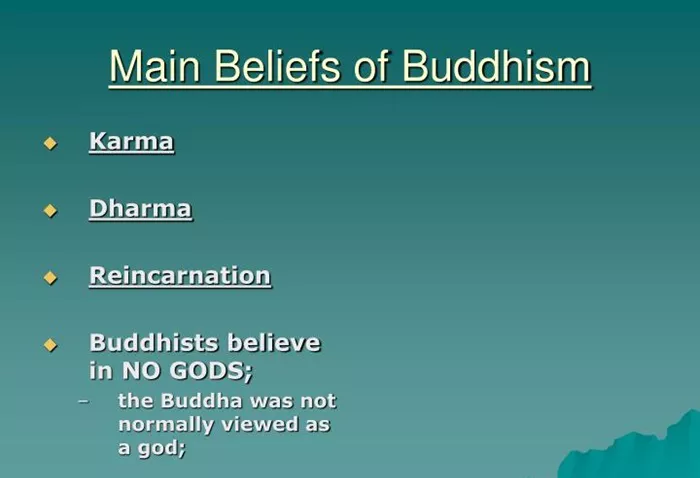The Four Noble Truths form the foundation of Buddhist teachings, offering a roadmap to understanding suffering and achieving liberation. First, life is inherently marked by suffering (dukkha), which encompasses physical pain, emotional struggles, and the impermanence of all things. Second, suffering arises from attachment and craving (tanha), such as desire for material possessions or the pursuit of fleeting happiness. Third, suffering can be overcome by eliminating attachment, leading to a state of liberation known as Nirvana. Fourth, the path to Nirvana is the Noble Eightfold Path, a set of ethical and spiritual practices that guide individuals toward enlightenment.
The Noble Eightfold Path
The Noble Eightfold Path is divided into three categories: ethical conduct, mental discipline, and wisdom. Right Understanding involves embracing the Four Noble Truths and recognizing the impermanence of all phenomena. Right Intention focuses on cultivating compassion and renunciation. Right Speech emphasizes honesty and avoiding harmful language. Right Action promotes nonviolence and ethical behavior. Right Livelihood encourages earning a living without causing harm to others. Right Effort involves actively cultivating positive states of mind. Right Mindfulness requires being fully present and aware of one’s thoughts and actions. Right Concentration is achieved through meditation to develop mental clarity and focus.
Karma and Rebirth
The Law of Karma
Karma, meaning “action” in Sanskrit, is a fundamental concept in Buddhism. Every thought, word, and deed creates karma, which shapes an individual’s present and future experiences. Positive actions (good karma) lead to favorable outcomes, while negative actions (bad karma) result in suffering. Karma is not deterministic, but rather a natural law of cause and effect that can be altered through conscious effort and ethical conduct.
Rebirth and Reincarnation
Buddhism teaches that life is a cycle of birth, death, and rebirth (samsara). Rebirth is not the transmigration of a soul, but rather the continuation of consciousness influenced by karma. The quality of one’s rebirth depends on the accumulated karma from past lives. The ultimate goal is to escape this cycle by attaining Nirvana, a state of liberation from suffering and rebirth.
Buddhist Practices
Meditation
Meditation is a central practice in Buddhism, serving as a means to cultivate mindfulness and insight. Techniques such as Vipassana (insight meditation) and Samatha (concentration meditation) help individuals observe their thoughts and emotions without judgment. Recent studies in neuroscience have shown that meditation can reduce stress, improve emotional regulation, and enhance cognitive function. Regular meditation practice is believed to lead to a deeper understanding of the nature of reality and a gradual transformation of the mind.
Ethical Conduct
Buddhist ethics are based on the principles of nonviolence (ahimsa), truthfulness, and compassion. The Five Precepts guide lay practitioners: 1. Avoid killing, 2. Avoid stealing, 3. Avoid sexual misconduct, 4. Avoid lying, 5. Avoid intoxicants. Monks and nuns follow more extensive戒律 (vinaya), which include celibacy and renunciation of material possessions. Ethical conduct is seen as essential for creating a harmonious society and cultivating positive karma.
Buddhism and Science
Complementary Worldviews
Buddhism and science share a common emphasis on empirical observation and critical inquiry. Buddhist teachings on impermanence and interdependence resonate with scientific theories such as quantum physics and ecology. For example, the Buddhist concept of anicca (impermanence) aligns with the scientific understanding of the universe as constantly changing. Similarly, the idea of pratityasamutpada (dependent origination) mirrors the interconnectedness of all phenomena in nature.
Meditation and Neuroscience
Research in neuroscience has explored the effects of meditation on the brain. Studies have found that long-term meditators exhibit structural changes in brain regions associated with attention, empathy, and emotional regulation. Functional MRI studies have shown that meditation activates the prefrontal cortex, which is involved in decision-making and self-control. These findings suggest that meditation can enhance mental well-being and promote positive psychological changes.
Modern Relevance of Buddhism
Spiritual Practices in Daily Life
Buddhism offers practical guidance for navigating the challenges of modern life. Mindfulness-based stress reduction (MBSR) programs have been widely adopted in healthcare and education to help individuals manage stress and improve focus. The Buddhist emphasis on compassion and nonattachment can also foster resilience and emotional balance in a fast-paced, materialistic world.
Social and Environmental Responsibility
Buddhism promotes social justice and environmental stewardship. Engaged Buddhism is a movement that applies Buddhist principles to address contemporary issues such as poverty, inequality, and climate change. Many Buddhist organizations are actively involved in charitable work, environmental conservation, and interfaith dialogue. The Dalai Lama has been a vocal advocate for peace and compassion, emphasizing the importance of ethical conduct in personal and public life.
Conclusion
Buddhism is a rich and diverse tradition that offers profound insights into the nature of suffering, the power of the mind, and the possibility of liberation. Its core teachings—the Four Noble Truths, the Noble Eightfold Path, and the law of karma—provide a practical framework for living a meaningful and ethical life. By integrating spiritual practices with scientific inquiry, Buddhism continues to inspire individuals around the world to cultivate wisdom, compassion, and inner peace.

